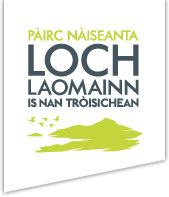
West Riverside – planning application refused
Dr Heather Reid, Convener of Loch Lomond & The Trossachs National Park Authority Board, said:
“Today (Monday 16th September) the National Park Authority Board unanimously refused a planning application for a major tourism development at West Riverside and Woodbank House in Balloch.
“This decision was taken following a thorough, robust and transparent process. That process included a site visit, careful consideration of the planning assessment report, and of consultation responses from local and national public bodies, other statutory consultees, and representations from members of the public.
“The Board heard from speakers both in support of and in objection to the proposal at a hearing heard in public in Balloch today.
“The application considered by the Board today included proposals for a significant amount of development in an area of flood risk. It was concluded that no exceptions to national policy would apply which would allow the principle of new built development to be acceptable in these areas. As such, SEPA had objected to the application.
“National Planning Framework 4 gives increased weight to the global climate emergency and the nature crisis. It ensures they are recognised as a priority in all plans and decisions.
“The Board found that the proposal also failed to satisfy the NPF4 requirement to deliver significant biodiversity enhancement.
“The development would have resulted in larger areas of woodland loss than set out by the applicant, including some areas of ancient woodland, and the proposed compensation falls significantly short of national policy requirements. This would not contribute positively to creating nature rich places or restoring local nature networks.
“Finally, it was concluded that the scale of the proposal overall was in conflict with the site’s capacity for development.
“The National Parks (Scotland) Act 2000 states that if it appears that there is a conflict between the first aim – conservation and enhancement of the natural and cultural heritage of the area – and the other National Park aims, greater weight must be given to the first aim.
“The role and purpose of National Parks is changing. It is recognised that National Parks can provide leadership for nature recovery and significantly contribute to becoming a Net Zero Nation.
“As such, our National Park Partnership Plan states that future development and infrastructure within the National Park should support tackling the climate emergency and maximise opportunities to deliver or enable nature restoration.
“Ultimately the Board felt that this proposed development would not do that.
“The application was refused because it does not comply with Scotland’s National Planning Framework 4, the Local Development Plan for the National Park or the National Park Partnership Plan.”

